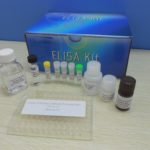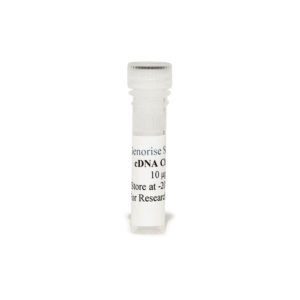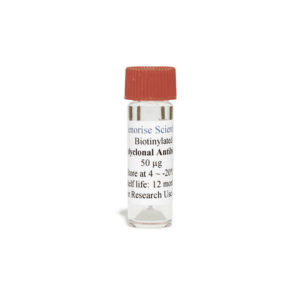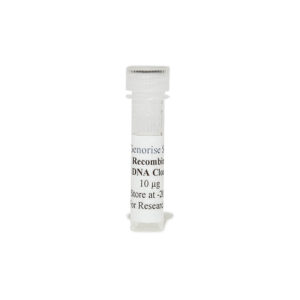Recombinant Bovine ANGPTL3 Protein
$99.00 – $456.00
The recombinant bovine ANGPTL3 protein is derived from in vivo expression of bovine ANGPTL3 gene in E. coli and purified using his-tag affinity column and can be used in multiple applications such as cell culture.
Alternative names for ANGPTL3: Angiopoietin-like 3
This product is for Laboratory Research Use Only, not for diagnostic and therapeutic purposes or any other purposes.
- Description
- Product Citations
- Reviews (0)
Description
Genorise Recombinant Bovine ANGPTL3 Protein Summary
Alternative names for ANGPTL3: Angiopoietin-like 3
Alternative name for bovine: Cattle, cow, bull
Product Specifications
| Purity | > 95%, by SDSPAGE under reducing conditions and visualized by silver stain. |
| Endotoxin Level | < 0.1 EU per 1 μg of the protein by the LAL method. |
| Activity | na |
| Source | E. coli derived canine NRG1. |
| Accession # | Q2KJB3 |
| N-Terminal Sequence Analysis | Leu |
| Amino Acid Sequence | Leu189-Glu459 |
| Predicted Molecular Mass | 29.7 kDa |
| SDS-PAGE | 30 kDa, reducing conditions |
Background:
Angiopoietin-like 3 ( ANGPTL3) is a protein that is encoded by the ANGPTL3 gene[1] and a member of the angiopoietin-like family of secreted factors. It is expressed predominantly in the liver, and has the characteristic structure of angiopoietins, consisting of a signal peptide, N-terminal coiled-coil domain, and the C-terminal fibrinogen (FBN)-like domain. The FBN-like domain in ANGPTL3 protein was shown to bind alpha-5/beta-3 integrins, and this binding induced endothelial cell adhesion and migration. ANGPTL3 may also play a role in the regulation of angiogenesis. Angptl3 also acts as dual inhibitor of lipoprotein lipase (LPL) and endothelial lipase (EL),[2] thereby increasing plasma triglyceride, LDL cholesterol and HDL cholesterol in mice and humans.[2] ANGPTL3 inhibits endothelial lipase hydrolysis of HDL-phospholipid (PL), thereby increasing HDL-PL levels. Circulating PL-rich HDL particles have high cholesterol efflux abilities. Angptl3 plays a major role in promoting uptake of circulating triglycerides into white adipose tissue in the fed state,[3] likely through activation by Angptl8, a feeding-induced hepatokine,[4][5] to inhibit postprandial LPL activity in cardiac and skeletal muscles,[6] as suggested by the ANGPTL3-4-8 model.[7] ANGPTL3 is a determinant factor of HDL level and positively correlates with plasma HDL cholesterol. In humans with genetic loss-of-function variants in one copy of ANGPTL3, the serum LDL-C levels are reduced. In those with loss-of-function variants in both copies of ANGPTL3, low LDL-C, low HDL-C, and low triglycerides are seen (“familial combined hypolipidemia“).[8]
References
- Conklin D, et al. (1999). Genomics. 62 (3): 477–82.
- Tikka A, Jauhiainen M (2016). Endocrine. 52 (2): 187–93.
- Wang Y, et al. (2015). Proc Natl Acad Sci USA. 112 (37): 11630–5.
- Zhang R (2012). Biochemical and Biophysical Research Communications. 424 (4): 786–92.
- Ren G, et al. (2012). Am J Physiol Endocrinology and Metabolism. 303 (3): E334-51.
- Fu Z, et al. (2015). Scientific Reports. 5: 18502. doi:1038/srep18502.
- Zhang R (2016). Open Biology. 6 (4): 150272. doi:1098/rsob.150272.
- Musunuru K, et al. (2010). The New England Journal of Medicine. 363 (23): 2220–7.
Product Citations
Be the first to review “Recombinant Bovine ANGPTL3 Protein”
You must be logged in to post a review.




























Reviews
There are no reviews yet.